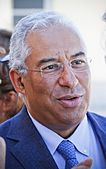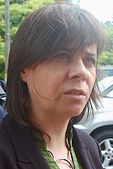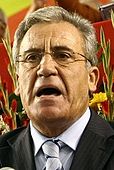Portuguese legislative election, 2015
|
|
|||||||||||||||||||||||||||||||||||||||||||||||||||||||||||||||||||||||||||||||||||||||||
|---|---|---|---|---|---|---|---|---|---|---|---|---|---|---|---|---|---|---|---|---|---|---|---|---|---|---|---|---|---|---|---|---|---|---|---|---|---|---|---|---|---|---|---|---|---|---|---|---|---|---|---|---|---|---|---|---|---|---|---|---|---|---|---|---|---|---|---|---|---|---|---|---|---|---|---|---|---|---|---|---|---|---|---|---|---|---|---|---|---|
|
|||||||||||||||||||||||||||||||||||||||||||||||||||||||||||||||||||||||||||||||||||||||||
|
230 seats to the Assembly of the Republic 116 seats needed for a majority |
|||||||||||||||||||||||||||||||||||||||||||||||||||||||||||||||||||||||||||||||||||||||||
| Registered | 9,684,922 |
||||||||||||||||||||||||||||||||||||||||||||||||||||||||||||||||||||||||||||||||||||||||
| Turnout | 5,408,092 (55.8%) |
||||||||||||||||||||||||||||||||||||||||||||||||||||||||||||||||||||||||||||||||||||||||
|
|||||||||||||||||||||||||||||||||||||||||||||||||||||||||||||||||||||||||||||||||||||||||

Most voted-for political force by district or autonomous region
(PSD ran alone in Azores and Madeira.) |
|||||||||||||||||||||||||||||||||||||||||||||||||||||||||||||||||||||||||||||||||||||||||
|
|||||||||||||||||||||||||||||||||||||||||||||||||||||||||||||||||||||||||||||||||||||||||
A Portuguese legislative election was held on 4 October 2015. All 230 seats of the Assembly of the Republic were in contention.
The centre-right coalition Portugal Ahead (PàF), composed of the Social Democratic Party (PSD) and the People's Party (CDS-PP), won the single largest vote with 38.6%, securing 46% of the seats in the Assembly. Compared with 2011, this was a loss of 12% in support (although the PSD and the CDS–PP did not contest the 2011 election in coalition). On the electoral map, the coalition won every district in the North and in the Centre except Castelo Branco. They also have won in the districts of Lisbon and Porto. The map shows a clear North-South divide, with the liberal conservative coalition winning almost everything in the North and Centre and the PS winning in the South.
The Socialist Party (PS) was the second most voted political force, winning 32.3% of the vote and 37% of the seats in the Parliament. The PS received a higher share of the vote than in 2011, but did not increase its share by as much of a margin as had been predicted by the opinion polls prior to September 2015. António Costa, former mayor of Lisbon, was not able to win the city of Lisbon, where the PS lost to PàF 35% to 37%. Although the PS and the other left-wing parties did win a clear overall majority in Parliament, in his concession speech Costa said that he would not support "a negative coalition" with the Left Bloc and Communist Party and that he would rather talk and negotiate with the PSD/CDS–PP coalition.
The Left Bloc (BE), despite predictions by opinion polls, achieved its best result in history, with more than 10% of the vote, becoming the third largest parliamentary group. The CDU's share of the vote increased slightly compared to 2011, receiving 8% of the vote and one additional MP. The People–Animals–Nature (PAN) also elected one member of parliament becoming the first time since 1999 in which a new party entered the Assembly.Voter turnout reached a new low, with just 55.8% of the electorate casting their ballot on election day.
...
Wikipedia





